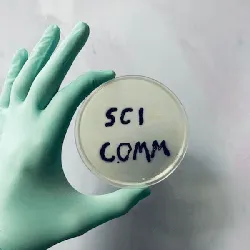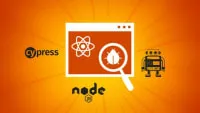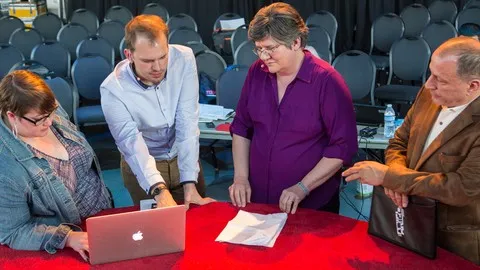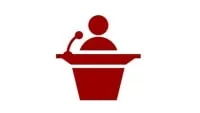
Designing Effective Science Communication 
In order to effectively communicate science to the public, scientists must understand the challenges of engaging with scientific information and develop strategies to overcome them. This includes examining the impact of political and pop culture figures on scientific decisions, and developing effective communication techniques to ensure that the public is informed and engaged with scientific issues. ▼
ADVERTISEMENT
Course Feature
![]() Cost:
Cost:
Free
![]() Provider:
Provider:
Coursera
![]() Certificate:
Certificate:
Paid Certification
![]() Language:
Language:
English
![]() Start Date:
Start Date:
5th Jun, 2023
Course Overview
❗The content presented here is sourced directly from Coursera platform. For comprehensive course details, including enrollment information, simply click on the 'Go to class' link on our website.
Updated in [March 06th, 2023]
This course, Designing Effective Science Communication, is designed for scientists, science educators, and science communicators who are interested in re-thinking how science is communicated to diverse audiences, particularly to the general public. Learners will gain an understanding of key principles of human learning that undergird science communication, as well as an appreciation of pitfalls in “popular” avenues for science outreach. Best practices for science communication in a variety of media will be discussed and applied. Topics include evidence-based considerations of human learning, effective communication through oral presentations, written forms of communication, technology, and artistic media. Upon completion of the course, learners will be equipped with the skills needed to design and implement effective methods of science communication.
[Applications]
Upon completion of this course, learners should be able to apply the principles of effective science communication to their own work. They should be able to identify key principles of human learning that undergird science communication, describe pitfalls in “popular” avenues for science outreach, and apply best practices to science communication in a variety of media. Learners should also be able to design and implement effective methods of science communication to diverse audiences, particularly to the general public.
[Career Paths]
1. Science Communicator: Science communicators are responsible for translating complex scientific information into accessible language for the general public. They must be able to effectively communicate scientific concepts to a variety of audiences, including those with limited scientific backgrounds. This job is becoming increasingly important as the public is increasingly exposed to scientific information through the media and other sources. Developing trends in this field include the use of digital media, such as podcasts and videos, to reach a wider audience.
2. Science Educator: Science educators are responsible for teaching science to students of all ages. They must be able to effectively communicate scientific concepts to students and help them understand the importance of science in their lives. Developing trends in this field include the use of technology, such as virtual reality, to engage students in the learning process.
3. Science Writer: Science writers are responsible for writing about scientific topics for a variety of audiences. They must be able to effectively communicate scientific concepts in a way that is both accurate and engaging. Developing trends in this field include the use of multimedia, such as videos and interactive graphics, to make scientific topics more accessible.
4. Science Policy Analyst: Science policy analysts are responsible for analyzing the impact of scientific research on public policy. They must be able to effectively communicate the implications of scientific research to policy makers and the public. Developing trends in this field include the use of data visualization to make complex scientific information more accessible.
[Education Paths]
Recommended degree paths for learners include:
1. Master of Science in Science Communication: This degree program focuses on the development of effective communication strategies for science-related topics. It covers topics such as the principles of human learning, the use of technology and artistic media for science communication, and the development of effective communication strategies. This degree is becoming increasingly popular as the need for effective science communication grows.
2. Master of Science in Science Education: This degree program focuses on the development of effective teaching strategies for science-related topics. It covers topics such as the principles of human learning, the use of technology and artistic media for science education, and the development of effective teaching strategies. This degree is becoming increasingly popular as the need for effective science education grows.
3. Master of Science in Science Policy: This degree program focuses on the development of effective policy strategies for science-related topics. It covers topics such as the principles of human learning, the use of technology and artistic media for science policy, and the development of effective policy strategies. This degree is becoming increasingly popular as the need for effective science policy grows.
4. Master of Science in Science Journalism: This degree program focuses on the development of effective journalism strategies for science-related topics. It covers topics such as the principles of human learning, the use of technology and artistic media for science journalism, and the development of effective journalism strategies. This degree is becoming increasingly popular as the need for effective science journalism grows.
Pros & Cons

Clear and accessible content delivery

Helps to understand basics of science communication

Interesting theoretical and practical elements

Valuable activities and course content

Enriches knowledge on how to design media

Practical elements could be explained better

Interviews not helpful in learning skills

Examples centered around teacher's experience

Course materials could be extended

Longer to achieve certificate due to peer reviews
Course Provider

Provider Coursera's Stats at AZClass
Discussion and Reviews
0.0 (Based on 0 reviews)
Explore Similar Online Courses

React Web App Testing With NodeJs Cypress and WebDriverIO

Build Telegram Bots with JavaScript: The Complete Guide

Python for Informatics: Exploring Information

Social Network Analysis

Introduction to Systematic Review and Meta-Analysis

The Analytics Edge

DCO042 - Python For Informatics

Causal Diagrams: Draw Your Assumptions Before Your Conclusions

Whole genome sequencing of bacterial genomes - tools and applications

Free Presentation Skills Tutorial - Presentation Skills Secrets:Delivering the Talk of Your Life

Effective Presentations

Early Career Academic Researchers - Online Course - FutureLearn
 Related Categories
Related Categories
 Popular Providers
Popular Providers
 Popular Searches
Popular Searches
Quiz
 Submitted Sucessfully
Submitted Sucessfully
1. What is the objective of this course?
2. What are the topics of this course?
3. What are the pitfalls in “popular” avenues for science outreach?
4. The objective of this course is to equip learners with the skills needed to design and ________ effective methods of science communication.
Correct Answer: implement


Start your review of Designing Effective Science Communication